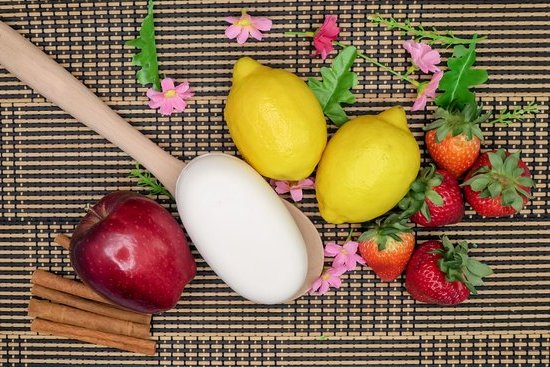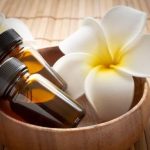Aromatherapy oils have been used for centuries due to their therapeutic properties and benefits for the mind and body. From relieving stress to enhancing relaxation, aromatherapy oils offer a holistic approach to well-being. What are the benefits of aromatherapy oils that make them so popular today?
The practice of using aromatherapy oils dates back to ancient civilizations, where plant extracts were used for healing and spiritual purposes. Over time, the concept of aromatherapy has evolved into a widely accepted complementary therapy in modern wellness practices. These essential oils are derived from plants and contain various aromatic compounds that offer a range of health benefits.
Each type of aromatherapy oil offers unique properties that can target specific physical, mental, or emotional concerns. From lavender for relaxation to eucalyptus for respiratory support, the versatility of these oils makes them valuable tools in promoting overall well-being. Understanding how these oils work on the body and mind is essential in maximizing their benefits for a healthier lifestyle.
History of Aromatherapy and Its Evolution
Aromatherapy has a rich history that dates back thousands of years and has evolved into the practice we know today. The use of aromatic plant extracts for healing purposes can be traced back to ancient civilizations such as the Egyptians, Greeks, Romans, and Chinese. These early cultures recognized the therapeutic benefits of essential oils and used them in various rituals, ceremonies, and medical treatments.
Over time, the practice of aromatherapy continued to evolve as it spread across different regions and cultures. In the Middle Ages, essential oils were commonly used in Europe for their medicinal properties, especially during the outbreak of plagues and epidemics. During the 19th century, French chemist René-Maurice Gattefossé coined the term “aromatherapy” after discovering the healing effects of lavender oil on burns.
Today, aromatherapy has become a popular alternative therapy that harnesses the power of plant-derived essential oils to promote physical, mental, and emotional well-being. Aromatherapists blend different oils to create customized treatments based on individual needs. With a deeper understanding of the historical roots and modern practices of aromatherapy, it is evident why this holistic approach continues to gain popularity in promoting overall health and wellness.
- Explore how ancient civilizations used aromatic plant extracts for healing
- Learn about the significant contributions made by French chemist René-Maurice Gattefossé
- Understand how aromatherapy has evolved into a popular alternative therapy today
Different Types of Aromatherapy Oils and Their Properties
Aromatherapy oils come in a wide range of varieties, each with its own unique properties and benefits. These essential oils are extracted from various plants, flowers, herbs, and even fruits through processes like distillation or cold pressing. The diversity in aromatherapy oils allows individuals to choose blends that cater to their specific needs and preferences.
Popular Types of Aromatherapy Oils
Some commonly used aromatherapy oils include lavender, peppermint, tea tree, eucalyptus, chamomile, and rosemary. Each of these essential oils possesses distinct therapeutic qualities that make them suitable for addressing different health concerns. For example, lavender oil is known for its calming and relaxing effects, while peppermint oil is often used for its invigorating properties.
Their Unique Properties
The properties of aromatherapy oils can vary widely depending on the plant they are derived from. Lavender oil has anti-inflammatory and anti-anxiety effects, making it excellent for promoting relaxation and relieving stress. On the other hand, eucalyptus oil is commonly used for its decongestant properties and ability to clear the sinuses. Understanding the specific properties of each aromatherapy oil is crucial in selecting the right one for your desired outcome.
Blending Aromatherapy Oils
One of the advantages of aromatherapy is the ability to mix different essential oils to create personalized blends that target multiple issues simultaneously. Blending oils not only enhances their therapeutic benefits but also allows individuals to enjoy unique fragrances tailored to their preferences. Experimenting with different combinations can help individuals discover synergies between oils that promote overall well-being.
How Aromatherapy Oils Work on the Body and Mind
Aromatherapy oils work on the body and mind through the inhalation and absorption of their aromatic compounds. When essential oils are inhaled, they stimulate the olfactory system, which is connected to the limbic system in the brain. This complex network of structures in the brain is responsible for emotions, behaviors, sense of smell, and long-term memory. This interaction triggers a cascade of physiological responses that can promote relaxation, reduce stress, improve mood, and even alleviate pain.
Additionally, when applied topically or used in massage with carrier oils, aromatherapy oils can be absorbed through the skin into the bloodstream. The properties of the essential oils then interact with various bodily systems, depending on the specific oil used.
For example, lavender oil is known for its calming effects on both the mind and body, making it a popular choice for promoting relaxation and restful sleep. Conversely, peppermint oil has invigorating properties that can help boost energy levels and improve focus.
Incorporating aromatherapy oils into your daily routine can have a profound impact on your overall well-being. Whether you choose to diffuse essential oils throughout your home, add them to bath water for a therapeutic soak, or create custom blends for massage or skincare products, there are endless ways to experience the benefits of aromatherapy oils.
Experimenting with different oils and application methods can help you discover what works best for you and enhance your physical health and mental well-being.
Top Benefits of Aromatherapy Oils for Physical Health
Aromatherapy oils offer a wide range of benefits for physical health that have been recognized for centuries. One of the key advantages of using these essential oils is their ability to help alleviate various physical ailments. For example, lavender oil is known for its calming properties and can aid in reducing headaches and migraines. Eucalyptus oil, on the other hand, is often used to relieve respiratory issues such as congestion and coughs.
Moreover, aromatherapy oils can also support the immune system by boosting overall health and well-being. Oils like tea tree and peppermint have antimicrobial properties that can help fight off infections and strengthen the body’s natural defense mechanisms. Additionally, essential oils like chamomile and ginger can be beneficial for soothing digestive discomfort and promoting a healthy gut.
Incorporating aromatherapy oils into your daily routine can contribute to better physical health outcomes by providing natural remedies for common ailments. Whether used in massage therapy, baths, or diffusers, these oils have shown promising results in improving overall well-being. By harnessing the power of aromatherapy oils for physical health benefits, individuals can take proactive steps towards a healthier lifestyle.
| Benefits of Aromatherapy Oils | Examples |
|---|---|
| Alleviate Physical Ailments | Lavender oil for headaches |
| Support Immune System | Tea tree oil for infections |
| Promote Digestive Health | Ginger oil for digestive discomfort |
Mental and Emotional Benefits of Aromatherapy Oils
Aromatherapy oils have been known for their ability to not only provide physical benefits but also mental and emotional support. The use of essential oils in aromatherapy can help improve mood, reduce stress, anxiety, and promote relaxation. Let’s explore the mental and emotional benefits of aromatherapy oils in more detail.
Calming Effects
Certain aromatherapy oils such as lavender, chamomile, and bergamot are well-known for their calming effects on the mind. Inhaling these essential oils through diffusers or applying them topically can help reduce feelings of stress and promote relaxation. The gentle aroma of these oils can create a peaceful environment that fosters mindfulness and a sense of tranquility.
Mood Enhancement
Aromatherapy oils like citrus scents (such as lemon, orange, or grapefruit) have uplifting properties that can enhance mood and energy levels. These essential oils are known to stimulate the release of neurotransmitters like serotonin which can boost feelings of happiness and well-being. By incorporating these oils into your daily routine, you can experience an improvement in overall mood and mental outlook.
Stress Relief
One of the key benefits of aromatherapy oils is their ability to provide stress relief. Oils like peppermint, eucalyptus, or frankincense have soothing properties that help calm the nervous system and reduce anxiety levels.
When used in a diffuser or added to a warm bath, these essential oils can create a sense of relaxation and alleviate tension in both the body and mind. Incorporating aromatherapy into your self-care routine can be an effective way to manage daily stressors and promote emotional well-being.
By understanding the mental and emotional benefits of aromatherapy oils, individuals can harness the power of these natural remedies to support their overall well-being. Whether it’s seeking calmness, enhancing mood, or relieving stress, incorporating essential oils into daily routines can provide a holistic approach to promoting mental health and emotional balance.
Using Aromatherapy Oils in Daily Life
Aromatherapy oils can be incorporated into daily life in various ways to enhance overall well-being. One popular method is using a diffuser to spread the scent of essential oils throughout a room, creating a calming and pleasant atmosphere. Whether it’s lavender for relaxation, peppermint for energy, or citrus oils for a mood boost, diffusing aromatherapy oils can have a positive impact on your mood and productivity.
Another way to use aromatherapy oils in daily life is by adding them to your skincare routine. Many essential oils have properties that benefit the skin, such as reducing inflammation, fighting acne-causing bacteria, or providing hydration. By mixing a few drops of essential oils with your favorite carrier oil or moisturizer, you can create a customized skincare product that not only improves the appearance of your skin but also indulges your senses.
Incorporating aromatherapy oils into self-care rituals is also a popular practice. From adding a few drops of relaxing chamomile oil to a warm bath to using a lavender-scented pillow spray before bedtime, these small rituals can help promote relaxation and better sleep quality. By taking the time to mindfully incorporate aromatherapy oils into daily routines, individuals can experience the numerous benefits they offer for both physical and emotional well-being.
Safety Precautions and Best Practices When Using Aromatherapy Oils
Aromatherapy oils have gained popularity for their various benefits on physical, mental, and emotional well-being. However, like any other natural remedy, it is essential to understand the safety precautions and best practices when using aromatherapy oils. One crucial point to note is that essential oils are highly concentrated plant extracts and should be handled with care to prevent adverse effects.
When using aromatherapy oils, it is vital to dilute them properly before applying them to the skin to avoid skin irritations or allergic reactions. Carrier oils such as coconut oil or sweet almond oil can be used for dilution. Additionally, performing a patch test before using any new essential oil can help determine if you have any sensitivities to it. This simple step can prevent potential skin issues and ensure a positive experience with aromatherapy.
Another important practice when using aromatherapy oils is to store them properly in dark glass containers away from direct sunlight and heat. Proper storage helps maintain the potency of the essential oils and prolongs their shelf life. It is also advisable to keep essential oils out of reach of children and pets to prevent accidental ingestion or misuse. By following these safety precautions and best practices, you can enjoy the many benefits of aromatherapy oils effectively and safely.
| Safety Precautions | Best Practices |
|---|---|
| Dilute essential oils properly before skin application | Perform patch tests before using new essential oils |
| Store aromatherapy oils in dark glass containers | Away from sunlight and heat |
| Keep essential oils out of reach of children and pets | To prevent accidental ingestion or misuse |
Conclusion
In conclusion, the benefits of aromatherapy oils are vast and profound. From its ancient origins to modern-day practices, aromatherapy has evolved into a powerful tool for enhancing physical, mental, and emotional well-being. By understanding the different types of oils and their unique properties, individuals can tailor their aromatherapy experience to address specific health concerns or simply promote relaxation and stress relief.
One of the key advantages of using aromatherapy oils is their ability to have a direct impact on the body and mind. Whether through inhalation or topical application, these natural extracts can stimulate the senses, improve circulation, relieve pain, boost immunity, and even balance hormones. This holistic approach to healing offers a gentle yet effective alternative to conventional medicine for those seeking natural remedies.
Moreover, incorporating aromatherapy oils into daily life can be a simple yet transformative practice. By diffusing essential oils at home or work, adding them to bathwater or massage oil, or even using them in meditation or yoga sessions, individuals can harness the power of these plant-based extracts to enhance their overall well-being.
With proper safety precautions and knowledge of best practices in aromatherapy usage, anyone can experience the numerous benefits that these oils have to offer for a healthier and more balanced life.
Frequently Asked Questions
Are There Any Benefits to Inhaling Essential Oils?
Inhaling essential oils can have various benefits for both physical and mental health. The aroma of essential oils can help reduce stress, improve sleep quality, boost mood, and even alleviate symptoms of anxiety or depression. Additionally, certain essential oils like eucalyptus or peppermint can help clear nasal passages and improve respiratory function.
How Does Aromatherapy Work on the Body?
Aromatherapy works by stimulating the olfactory system, which is directly connected to the brain’s limbic system – the area that controls emotions and memories. When essential oil molecules are inhaled, they interact with receptors in the nose, sending signals to the brain that can affect heart rate, blood pressure, stress levels, and other bodily functions.
This process can trigger emotional responses and promote relaxation or alertness depending on the oil used.
Do Essential Oils Actually Have Benefits?
Essential oils do have benefits when used properly and in the right context. Different essential oils offer various therapeutic properties such as anti-inflammatory, antibacterial, antiviral, or calming effects on the body and mind.
For example, lavender oil has been shown to promote relaxation and improve sleep quality while tea tree oil is known for its antimicrobial properties. However, it is important to use essential oils safely by diluting them properly and being mindful of any potential allergic reactions or sensitivities.

Are you looking for a natural way to improve your health and wellbeing?
If so, aromatherapy may be the answer for you.





